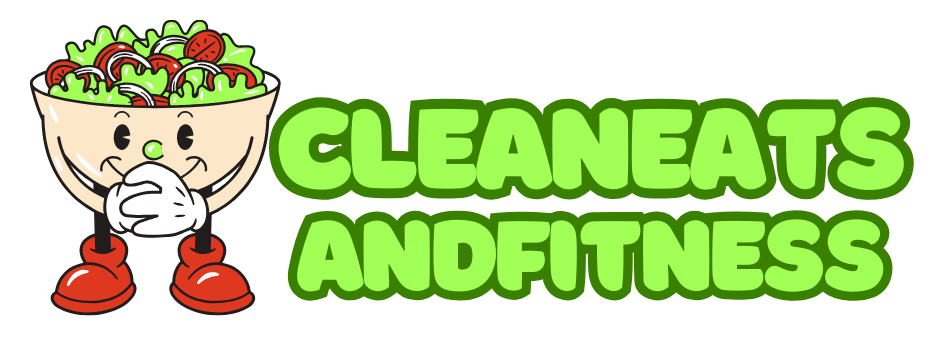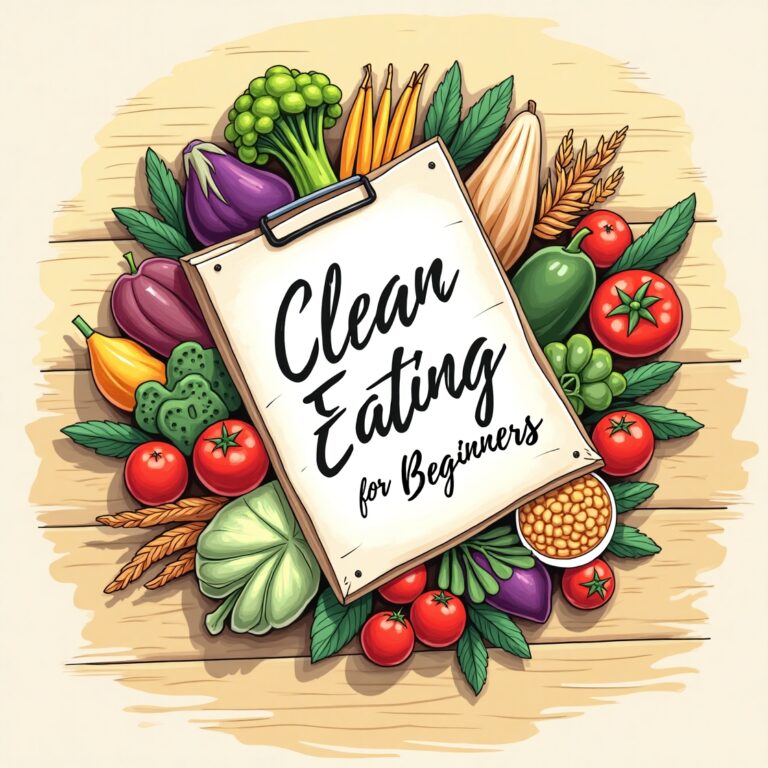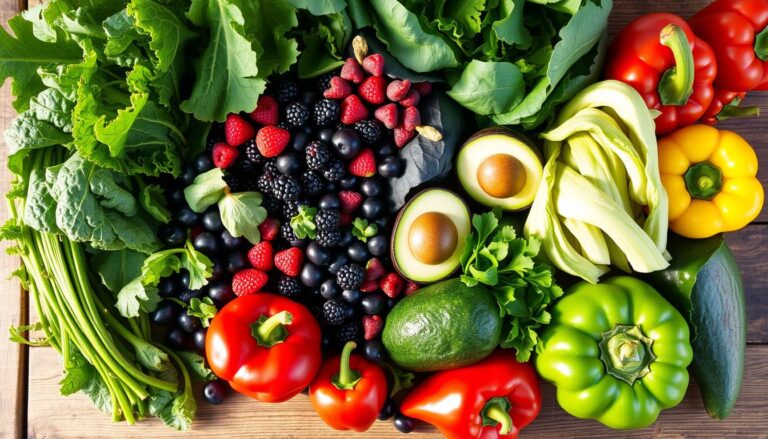The Truth About Clean Eating: Is It a Sustainable Lifestyle?
Have you wondered if clean eating is a good choice for the long run? It’s all about eating whole, unprocessed foods. Many people like it because it’s good for their health. But, some worry it might not be good for the planet or last forever.
More people are eating organic foods and looking for better nutrition tips. It’s important to know where clean eating comes from and what it might mean for us. So, is it really sustainable? Let’s look into this trend together and find out how it can help you eat better.

Key Takeaways
- Clean eating focuses on whole, unprocessed foods.
- It appeals to those seeking healthier eating habits.
- There is a growing trend of organic food consumption.
- Understanding the sustainability of clean eating is essential.
- Nutrition tips can help you adopt cleaner eating practices.
Understanding Clean Eating
Clean eating means eating whole foods that are good for your health. You eat fresh fruits, veggies, whole grains, lean proteins, and healthy fats. It’s about feeding your body well, not just counting calories.
Choosing food wisely is key in clean eating. Pick organic fruits and veggies and good proteins. It’s about the quality of food, not just how much you eat.
Learning about clean eating can teach you to plan and prep meals. Meal prep helps you stick to healthy foods and avoid junk. Trying new foods keeps your diet interesting and fun.
What Does Clean Eating Really Mean?
Clean eating means choosing fresh, whole foods over processed ones. It’s about picking foods that are good for you. Healthy eating starts with foods that don’t have additives or artificial stuff.
Clean eating focuses on foods like fruits, veggies, whole grains, lean proteins, and healthy fats. These foods give you the nutrients you need for health. It’s about avoiding foods with added sugars, preservatives, and unhealthy fats.
Your likes and dietary needs shape your clean eating plan. Some might avoid gluten or dairy. Others might choose plant-based foods. Cultural foods also play a big part in clean eating.
Starting clean eating helps you understand food better. It guides you to make choices that fit your health goals. It’s about finding balance and being mindful of what you eat.
| Food Type | Clean Eating | Processed Foods |
|---|---|---|
| Examples | Quinoa, spinach, chicken, almonds | Canned soups, sugary cereals, frozen meals |
| Nutritional Value | High in nutrients, unrefined | Often low in nutrients, high in additives |
| Preparation | Minimal cooking, simple ingredients | Ready-to-eat, complex ingredient lists |
| Health Impact | Boosts overall health | May contribute to health issues |
Is Clean Eating Sustainable? Debunking Myths and Expert Advice
Many people wonder if clean eating is sustainable. They think it’s too expensive and hard. But, it’s important to understand the truth about clean eating.
Nutritionists say you don’t need to spend a lot on organic foods. Eating whole, unprocessed foods is healthier and cheaper. Buying seasonal produce and shopping at local farmers’ markets can save money.
Some worry about the environment when it comes to clean eating. But, choosing organic or plant-based foods can help the planet. Dietitians say this choice is good for you and the Earth.
Experts tell us to stop believing false things about clean eating. Starting small can make a big difference. It shows that clean eating is doable for many.
The Benefits of Clean Eating
Choosing clean eating brings many good things to your health. It helps you eat better and feel more energetic. This makes your eating habits healthier.
Improved Nutrition
One big plus of clean eating is better nutrition. Eating whole foods gives you important vitamins and minerals. This means your body gets what it needs to stay healthy.
By eating fruits, veggies, whole grains, and lean proteins, you help your body. You get better digestion, a stronger immune system, and less chance of chronic diseases.
Enhanced Energy Levels
Clean eating also boosts your energy. Many people feel more alive and awake after starting a clean diet. Foods like leafy greens and nuts give you lasting energy.
They stop the energy crashes that come from processed snacks. Research shows clean eating can make you more energetic. This lets you do more physical activities and live a healthier life.
Common Misconceptions About Clean Eating
Many people think clean eating is too expensive or only for losing weight. But it’s not true. Clean eating is about eating well for your health, not just for weight loss.
Myth: Clean Eating is Expensive
Some think clean eating means spending a lot on organic foods. But it’s not that hard to eat clean without breaking the bank. You can find cheap fruits, veggies, and grains. Buying in bulk and planning meals helps too.
Myth: Clean Eating is Only for Weight Loss
Many believe clean eating is just for losing weight. But it’s more than that. It’s about eating foods that make you feel good and keep you healthy. It’s about taking care of your body, not just your weight.
Expert Advice on Clean Eating
Starting clean eating can seem hard at first. But, getting advice from experts can make it easier. First, learn about clean eating. It means eating whole foods and avoiding processed ones.
Nutrition experts say it’s key to read food labels. They suggest picking items with fewer ingredients. This helps you make better food choices.
Planning your meals is also important. Set aside one day a week to plan and prep food. This saves time and helps you stick to clean eating. Stock your pantry with healthy foods like quinoa and fresh veggies.
When you go shopping, choose local and seasonal foods. Farmers’ markets are great for finding fresh ingredients and supporting local farmers. This makes shopping more fun and connects you to your food.
Following these tips can make your clean eating journey rewarding.
| Tip | Description |
|---|---|
| Read Labels | Choose products with minimal ingredients to avoid additives and preservatives. |
| Meal Prep | Invest time in planning meals to stay committed to clean eating throughout the week. |
| Choose Local | Support local farmers by buying fresh, seasonal produce from farmers’ markets. |
| Stay Informed | Keep up with the latest nutrition tips from trusted sources to enhance your clean eating journey. |

Sustainable Food Choices for Clean Eating
Making sustainable food choices is key in the clean eating lifestyle. Eating local and seasonal produce boosts your health and helps the planet. Choosing fruits and veggies in season supports local farmers and gives you fresher, better nutrients.
Organic foods are a must for your meals. They’re made without harmful chemicals, helping the soil and nature. Choosing organic means you’re eating cleaner and helping the planet.
It’s important to pick proteins that are good for the planet. This means choosing animals raised right or plant-based foods that use less resources. Your protein choices greatly affect your food footprint.
Choosing sustainable foods in clean eating helps you and the planet. Being aware of your food’s origin and production is a big step towards a cleaner lifestyle.
How to Create Healthy Eating Habits
Starting healthy eating habits can make you feel better. It’s about eating clean and balanced. Adding variety to your meals keeps them fun and nutritious.
Listening to your body helps you eat right. It makes eating feel good and easy to keep up.
Incorporating Variety in Your Diet
Having variety in your diet is key. It stops you from getting bored with the same foods. Here are some tips:
- Try new fruits and veggies each week for different tastes and textures.
- Add whole grains like quinoa, brown rice, and farro for more carbs.
- Explore different proteins like beans, nuts, fish, and lean meats for more nutrients.
- Make new recipes with spices and herbs to make meals more exciting.
Listening to Your Body’s Needs
It’s important to listen to your body. Knowing when you’re hungry or full helps you eat better. Here are some tips:
- Enjoy each bite slowly to feel when you’re full.
- Keep a food diary to see what you like and when you’re hungry.
- Eat without distractions to really feel your hunger and fullness.
- Change how much you eat based on how active you are to keep your body fueled.
The Environmental Impact of Clean Eating
Clean eating is more than just good for you. It’s also good for the planet. By picking whole foods and local items, you help the environment. Unlike processed foods, fresh foods are better for our planet.
Choosing seasonal fruits and veggies helps local farms. It also cuts down on air pollution from long trips. This choice helps our planet by growing more types of food.
How we farm affects the earth a lot. Studies show that old farming ways harm soil and homes of animals. Clean eating means choosing organic. This helps soil and nature stay healthy.
By eating clean, you help protect the earth. Every food choice you make shows you care about the planet. Enjoying clean eating is like taking care of the earth for the future.
The Role of Whole Foods in Clean Eating
It’s important to know the difference between whole foods and processed foods. Whole foods are natural and don’t have artificial stuff. They are full of vitamins and minerals that your body needs.
Processed foods, on the other hand, have lots of preservatives and unhealthy stuff. They can make it hard to reach your health goals.
Understanding Processed vs. Whole Foods
Whole foods are things like fruits, veggies, and whole grains. They are good for you and help you feel full. Eating whole foods can make you healthier.
Processed foods, like sugary snacks and frozen dinners, are changed a lot. They might be easy to grab, but they’re not as good for you. Eating too much of them can hurt your health.
It’s key to know about preservatives and artificial stuff in processed foods. These can harm your health. Eating more whole foods helps you eat clean and stay healthy for a long time.
Making Clean Eating Work for You
Starting clean eating can seem hard, but it’s not. You can make it easier with the right tips. Clean eating is about eating well in a way that feels good for you.
Simplifying Your Meal Prep
Meal prep is key for clean eating success. It saves time and makes meal times less stressful. Pick a few recipes you like and set aside a day for prep.
- Batch cook grains like quinoa and brown rice.
- Prepare vegetables by washing and chopping them in advance.
- Designate portions of lean proteins for quick access.
These steps make your kitchen work better. They help you follow clean eating easily.
Finding Balance in Your Diet
Your diet should not feel like a chore. Sustainable eating means it’s okay to have treats sometimes. This keeps you from feeling deprived and makes clean eating more fun.
“Finding balance means enjoying your favorite foods while nourishing your body with wholesome ingredients.”
Being flexible helps you stick to clean eating without giving up fun. Remember, balance is important for a healthy and happy life.
Balancing Clean Eating with Real Life
Keeping up with clean eating in today’s world is tough. Your busy life might not leave time for cooking meals. This makes it hard to eat healthy.
But knowing this is the first step. It helps you find ways to eat well even when you’re busy.
When you’re out or at social events, here are some tips:
- Plan ahead: Look at menus before you go to find healthy choices.
- Communicate: Tell your friends or family about your diet when you plan to meet.
- Choose wisely: Pick grilled meats and veggies instead of fried foods.

Family meals can also stay healthy. Make meal prep fun for everyone. Try making healthier versions of your favorite dishes.
Being flexible makes it easier to keep up with clean eating. This way, you can enjoy healthy eating without feeling stuck.
Addressing Challenges in Clean Eating
Starting a clean eating journey can face many challenges. You might feel cravings, struggle in social situations, or get busy. Knowing these challenges helps you stay on track.
Dealing with Social Situations
Social events can be tough when you’re eating clean. Friends might offer unhealthy foods. To handle this, bring a healthy dish to share.
This way, you can enjoy the event without eating unhealthy. Tell your friends about your clean eating goals. They can support you instead of tempting you. It’s okay to say no to certain foods.
Staying Motivated
It’s hard to stay motivated, but it’s doable. Keep your goals in sight. Write them down or make a vision board.
Remember why you started. Celebrate small wins too. Like trying a new recipe or sticking to your plan for a week. These small successes keep you positive.
| Challenge | Strategy |
|---|---|
| Cravings | Opt for healthier alternatives or distractions like exercise. |
| Social Pressure | Communicate your goals and bring your own clean meals. |
| Lack of Motivation | Set clear goals and celebrate progress consistently. |
| Temptation | Prep meals in advance to avoid last-minute unhealthy choices. |
Conclusion
Exploring clean eating shows its many benefits and challenges. It can really improve your health. Clean eating is more than just dieting. It’s about living a healthy lifestyle.
By eating whole foods and being mindful, you can feel more energetic. You’ll also get better nutrition. But, there are obstacles like social situations or wrong ideas about clean eating.
Staying informed and motivated can help you get past these challenges. The big question is: can clean eating be sustainable? Yes, with careful planning and being flexible, it can be a positive part of your life.
Think about how to make clean eating work for you. It’s a journey, not just a goal. By finding strategies that fit your life, you can enjoy the benefits of clean eating. It’s about taking care of yourself, not just what you eat.
FAQ
Is clean eating sustainable long-term?
Yes, clean eating can last a long time if you have the right mindset. Eating whole foods helps your health and the planet. It means less waste and more support for local farmers.
What are the key principles of clean eating?
Clean eating means eating foods like fresh fruits, veggies, whole grains, and lean proteins. It’s about choosing foods that are good for you, not just filling.
Can clean eating be budget-friendly?
Clean eating doesn’t have to cost a lot. Buying seasonal and local foods, and cooking at home can save money. Planning meals helps too.
Are there any health benefits associated with clean eating?
Clean eating can make you healthier. It boosts your energy and lowers the risk of diseases. Eating foods full of nutrients is key to feeling your best.
How do I start a clean eating lifestyle?
Start by looking at what you eat now and how you can make it better. Eat more whole foods and plan your meals. Slowly changing your habits is best.
What are common misconceptions about clean eating?
Some think clean eating is only for losing weight or is too pricey. But it’s really about being healthy and can be affordable with smart choices.
How can I maintain healthy eating habits while adhering to clean eating principles?
Mix up your diet and listen to your body. Eat when you’re hungry and enjoy your food. This makes eating healthy a happy habit.
What is the environmental impact of clean eating?
Clean eating helps the planet by choosing local and seasonal foods. This cuts down on carbon emissions. Buying organic and sustainable products also helps nature.







